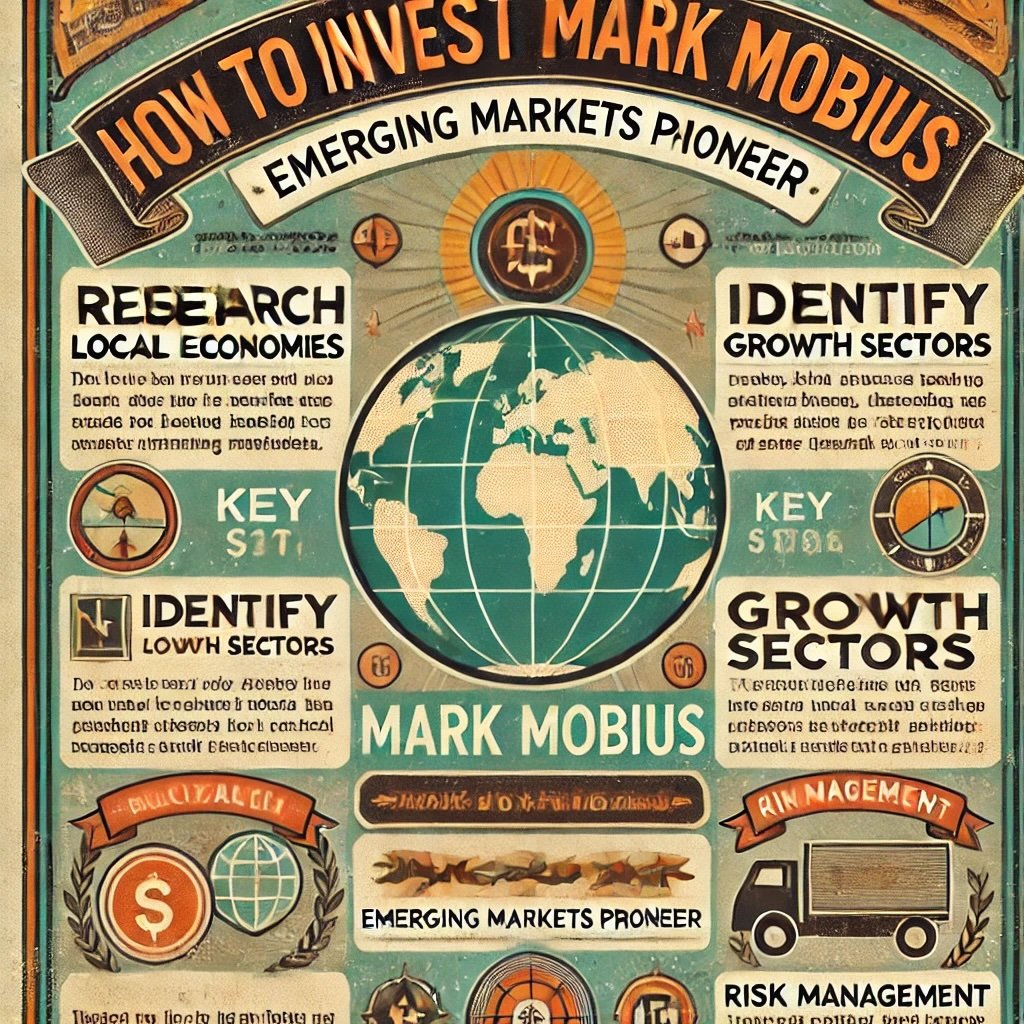Charlie Munger – a name that reverberates throughout the investment world with an echoing tone of reverence and awe. As the right-hand man of the Oracle of Omaha, Warren Buffett, Munger is an investment titan in his own right, amassing a fortune through his unparalleled acumen and unflinching dedication to value investing. With a sharp intellect, profound wisdom, and relentless curiosity, he has cemented his reputation as one of the most revered investors of our time. He isn’t just Warren Buffett’s business partner at Berkshire Hathaway – he’s the person that Buffett himself admits has done the most to influence his thinking.

Charlie Munger’s Unique Approach to Investing: The Power of Reading
But what truly sets Munger apart, even amongst the investment giants, is his approach to decision making – deeply rooted in the power of reading. Munger is a voracious reader, often devouring several books a week and constantly seeking knowledge from diverse fields. For him, investing isn’t just about financial statements and valuation ratios, it’s a multidisciplinary endeavor that benefits profoundly from a wider understanding of the world. He believes in the acquisition of worldly wisdom and forming a latticework of mental models across various disciplines – and all this comes from his love for reading.
In a world of high-frequency trading and complex financial algorithms, the importance of Munger’s approach cannot be understated. It serves as a crucial reminder that at its core, investing is a pursuit of knowledge and understanding. The wisdom Munger has gleaned from his exhaustive reading has guided him to make better, more informed investment decisions and continues to inspire investors worldwide. This article aims to delve into Munger’s secret weapon – his power of reading, and how it might help us become better investors. After all, if the technique can bring success to one of the world’s most brilliant investors, it’s certainly worth exploring.

Who is Charlie Munger? Background and Early Life
Charlie Munger was born on January 1, 1924, in Omaha, Nebraska. His formative years were marked by a fervent curiosity about the world, a trait that would later guide his approach to investing. He had humble beginnings, with his father a lawyer and his mother a homemaker. As a young boy, he showed a remarkable knack for numbers, a trait that later fueled his interest in the world of finance.
Munger attended the University of Michigan but left to serve as a meteorologist in the U.S. Army Air Corps during World War II. After the war, he went to Harvard Law School and graduated magna cum laude in 1948. Interestingly, despite his foray into finance and investing, he never took a formal course in economics or business.

Career Highlights and Achievements
Charlie Munger started his career as a lawyer but realized that he had a penchant for the world of investing. He switched gears and in 1962, he founded Wheeler, Munger, and Company, an investment partnership which achieved an annual average return of almost 20% over the next decade.
The collapse of this partnership due to some poor investment choices did not deter Munger. Instead, it served as a platform for him to learn and evolve his investment philosophy. Today, Munger is celebrated not just for his successes, but also for how he transformed failures into opportunities – a testament to his resilience.

Partnership with Warren Buffett and Berkshire Hathaway
The partnership between Charlie Munger and Warren Buffett, one of the most successful in the history of business, has its roots in a dinner party in Omaha in 1959. The duo shared a mutual friend who thought they would get along well given their shared passion for investing. Their friend was right – it was the beginning of a dynamic partnership that would reshape the world of investing.
Munger’s influence on Buffett was transformative. Munger introduced Buffett to the concept of ‘quality investing’ – buying great companies at fair prices rather than average companies at bargain prices. This significantly impacted Berkshire Hathaway’s investing strategy.
As Vice-Chairman of Berkshire Hathaway, Munger has played a crucial role in some of its most profitable investments, including Coca-Cola and See’s Candies. Today, he stands as a testament to the power of perseverance, resilience, and the relentless pursuit of knowledge – and reading is at the heart of it all.
source: YAPSS Archive on YouTube

Understanding Charlie Munger’s Investment Philosophy
Charlie Munger, much like his business partner Warren Buffett, is a staunch proponent of value investing. But what is value investing? In the most basic sense, value investing is the strategy of selecting stocks that trade for less than their intrinsic values. Value investors actively seek companies they believe the market has undervalued. They consider stocks as shares in a business, not just abstract ticker symbols, and want to invest in solid, understandable, and good-value businesses.
But for Munger, value investing goes beyond the rudimentary balance-sheet analysis or a relentless search for undervalued stocks. He is a long-term investor who doesn’t just buy stocks; he buys businesses he believes in, and that he feels are run by trustworthy, competent people. He focuses on whether the business is good, if it’s durable, and if it’s run by capable individuals. Then, and only then, does he consider the price.

Introduction to Munger’s ‘Latticework of Mental Models’
Munger advocates for a broad and multidisciplinary approach to investing. He calls this the ‘Latticework of Mental Models’. According to him, one needs to understand a range of disciplines to make better investment decisions, as they all interplay in the business ecosystem.
These disciplines include but are not limited to, psychology, history, mathematics, physics, philosophy, and literature. Each of these fields offers mental models – frameworks for thinking – that help better understand the world. For instance, understanding human psychology can help investors anticipate market behavior, while knowledge of history can provide context for current market events.
Role of Disciplinary Knowledge and its Application in Investing
The application of disciplinary knowledge is a defining characteristic of Munger’s investment philosophy. He believes that possessing knowledge across various disciplines provides investors with a distinct advantage. This cross-disciplinary approach to investing is what Munger calls ‘worldly wisdom.
For instance, understanding the basics of behavioral economics and psychology can help an investor understand market sentiments and overreactions. Knowledge in biology can aid in understanding the development and impact of a pandemic on global markets. A grounding in history can give insights into geopolitical shifts and their possible consequences on investments.
In Munger’s view, every piece of knowledge connects with another to form a web, a latticework, where understanding one concept may lead to better understanding another seemingly unrelated concept. This approach helps him gain a comprehensive perspective on potential investments and the market at large.
By weaving together this latticework of mental models, Munger doesn’t guarantee investment success, but he makes it possible to approach investing with a depth of understanding that’s beyond the reach of those who focus solely on financial metrics.
source: IDP on YouTube

Munger’s Reading Habits: His Secret Weapon
Insights into Munger’s Daily Reading Routine
Charlie Munger is not merely an advocate for reading – he is a living testament to its power. It’s reported that he spends a significant part of his day immersed in books, newspapers, and journals, often spending up to ten hours a day with a book in his hand. He believes that these countless hours spent in various states of curiosity, inquiry, and reflection have been his secret weapon, enabling him to see the investment world through a multi-disciplinary lens.
Munger’s reading routine is less about ticking off books on a reading list and more about the relentless pursuit of worldly wisdom. He isn’t choosy about reading materials; he reads everything from scientific journals to historical texts and everything in between. This omnivorous reading habit fuels his knowledge across multiple domains, forming the backbone of his latticework of mental models.

Examples of Munger’s Reading Choices and How They Influenced His Investments
Munger’s reading habit has profoundly influenced his investment decisions. One classic example is his investment in Costco. It is said that his decision to invest in Costco stemmed from reading and understanding the psychology behind discount retailing and the business model’s sustainability.
Similarly, Munger’s investment in Chinese company BYD, a manufacturer of batteries and electric cars, was driven by his extensive reading around the potential of electric vehicles and renewable energy. Munger was ahead of his time in recognizing this trend, demonstrating how his broad reading habits allowed him to identify this opportunity before others.

Quotations from Charlie Munger Highlighting the Importance of Reading
Munger’s conviction about the power of reading can be best understood through his own words. Here are a few of his famous quotes:
- “In my whole life, I have known no wise people (over a broad subject matter area) who didn’t read all the time – none, zero.”
- “I don’t think you can get to be a really good investor over a broad range without doing a massive amount of reading. I don’t think any one book will do it for you.”
- “You’d be amazed at how much Warren reads – at how much I read. My children laugh at me. They think I’m a book with a couple of legs sticking out.”
These quotes encapsulate Munger’s belief in the transformative power of reading. For him, reading isn’t just a hobby or a pastime; it’s a vital tool that helps shape his investment philosophy and approach, making him one of the most successful and respected investors globally.
source: ET Money on YouTube

How Reading Contributes to Better Investment Decisions
Analysis on How Reading Broadens Perspective
At its core, investing is about making decisions under uncertainty. Reading is one of the best ways to equip ourselves to deal with this uncertainty more effectively. When you read, you gain access to a broad array of perspectives, opinions, facts, and interpretations that span across time, culture, and discipline. This diversity of insights helps cultivate a more nuanced understanding of the world.
For instance, by reading about psychology, an investor could better understand consumer behavior, market sentiment, and their own cognitive biases. Reading history could give them an insight into how certain events might unfold based on historical precedents. Reading philosophy could help them build a robust ethical framework for their investment decisions.
This broad perspective helps investors escape the constraints of their immediate environment or the prevailing market sentiments. It allows them to spot trends, see through hype, and make independent investment decisions.

How Reading Helps Identify Investment Opportunities
In the realm of investing, knowledge is truly power. The more you know about a wide range of subjects, the better positioned you are to spot investment opportunities that others may overlook. Reading widely gives an investor a diverse set of mental models that can be applied to understand different industries and identify emerging trends.
For example, someone who reads extensively about technology and understands its trajectory might have foreseen the rise of companies like Amazon or Apple and invested in them early on. Similarly, reading about demographic trends might help identify investment opportunities in sectors like healthcare or education.
Case Studies of Munger’s Investments and the Role of Reading in His Decision-making Process
Munger’s investments bear the imprint of his diverse reading habits. His investment in See’s Candies, for instance, was influenced not just by the company’s financials but also by his understanding of consumer psychology and the concept of a ‘moat’ in a business model, garnered from his extensive reading.
Another case in point is Munger’s investment in Chinese car manufacturer BYD. Munger’s reading and understanding of the renewable energy sector helped him identify the potential of BYD way before it became mainstream. He saw a company that was not just producing electric cars but was also a leading manufacturer of rechargeable batteries. This broad perspective, fueled by his reading, allowed him to spot this opportunity.
These case studies underscore how Munger’s voracious reading habits have helped him become a better investor. His wide-ranging knowledge has allowed him to see connections that others often miss and has given him the wisdom to make investment decisions that deliver value in the long run.
source: Jack Canfield on YouTube
The Role of Continuous Learning in Investing
Charlie Munger is the embodiment of a lifelong learner. His insatiable curiosity and relentless pursuit of knowledge define his character and approach to investing.
Charlie Munger’s Lifelong Learning Ethic
He believes that one should never stop learning, and he practices what he preaches by spending several hours each day reading and expanding his knowledge.
To Munger, every new piece of information is an opportunity to learn and grow. Whether it’s understanding a new business model, delving into the intricacies of a global event, or exploring a novel concept in a scientific journal, he treats every reading moment as a step towards better understanding the world and making more informed investment decisions.

Impact of Continuous Learning on Investment Success
The impact of continuous learning on investment success is profound. Investing is a dynamic field. Market conditions change, new industries emerge, regulations evolve, and consumer behavior shifts. To navigate this ever-changing landscape successfully, investors need to stay informed, adaptable, and open to learning.
Continuous learning allows investors to understand and anticipate changes in the market landscape, thereby enabling them to make timely and informed investment decisions. It also helps in refining investment strategies, understanding risks better, and cultivating patience and discipline, qualities essential for long-term investment success.
Practical Ways to Cultivate a Habit of Continuous Learning
Cultivating a habit of continuous learning might seem daunting, but here are some practical ways to get started:
- Develop a Reading Habit: Start with subjects that interest you and gradually expand to diverse topics. Remember, the goal is not just to read more, but to learn more.
- Attend Webinars and Conferences: These platforms provide opportunities to learn from industry experts and stay updated on the latest trends and developments.
- Take Online Courses: Numerous platforms offer courses on a variety of subjects. It’s a structured way to gain in-depth knowledge on a specific topic.
- Join Investment Clubs or Discussion Groups: These platforms offer a collaborative environment to learn from other investors’ experiences and perspectives.
- Learn from Mistakes: Do not fear mistakes but view them as learning opportunities. Reflect on your investment decisions, understand your errors, and strive to improve.
By practicing continuous learning, just like Charlie Munger, one can enhance their understanding of the world, make more informed investment decisions, and ultimately, become a better investor.
source: Investors Archive on YouTube

Lessons from Charlie Munger: Implementing the Reading Strategy
Advice on Developing a Reading Habit
Munger once said, “I have always loved to sit and read. And I never knew anything that was really worth a damn that wasn’t learned in that fashion.” His advice for developing a reading habit is simple – start reading, and keep reading. You need not rush or stress over the number of books read; instead, focus on understanding and absorbing what you read.
The journey of reading is personal. Choose subjects that interest you and gradually venture into diverse topics. Read every day, even if it’s for a short while. Over time, you will see your reading speed increase, comprehension improve, and, most importantly, knowledge base expand.

Selection of Reading Material for Better Investment Decisions
Charlie Munger is an advocate of reading broadly. For him, no single discipline has all the answers. Therefore, read across different subjects – economics, business, psychology, philosophy, history, science, literature, and more. Remember, the goal is to understand the world in which businesses operate.
Keep an eye out for annual reports of companies, financial journals, reputed newspapers, and books about successful companies and business leaders. In the context of investing, these can provide invaluable insights. Also, venture into non-business books to understand societal trends, technological advancements, and global events that can impact businesses.
Role of Reading in Building Your Own ‘Latticework of Mental Models’
The “latticework of mental models” Munger often speaks about is essentially an internalized web of knowledge from various disciplines. Reading plays a crucial role in building this latticework. Each book, article, or paper you read contributes to this ever-growing knowledge web, giving you a multidimensional perspective while making investment decisions.
Start by familiarizing yourself with the basic principles from a wide range of subjects. Over time, as you read more, you’ll find that these concepts begin to connect in meaningful ways. This is your personalized latticework of mental models taking shape.
Remember, the latticework is not static. As you keep learning and growing, it keeps evolving, much like the investment world. As Charlie Munger puts it, “Our models are not enough, but that’s the best we can do. You have a lot of fun as you go along and get more and more models into your head.”
source: CMQ Investing on YouTube
Conclusion: Charlie Munger’s Philosophy and the Power of Reading
Charlie Munger, the legendary investor and Vice Chairman of Berkshire Hathaway, has a distinctive investment philosophy. At its core is a multidisciplinary approach fueled by an insatiable curiosity and a relentless pursuit of knowledge through reading. Munger’s philosophy transcends traditional financial metrics, incorporating insights from diverse disciplines into a ‘latticework of mental models.’
Impact of Reading on Munger’s Investment Success
Throughout his investment journey, reading has been Munger’s secret weapon. His voracious reading habit has enabled him to understand complex scenarios, anticipate trends, see through market noise, and make informed investment decisions. From investing in Costco, understanding the dynamics of discount retailing, to recognizing the potential of BYD and the future of electric vehicles, Munger’s reading habits have profoundly influenced his investment successes.

Encouragement for Readers to Implement Munger’s Reading Strategy in Their Own Investing
As we conclude this exploration of Charlie Munger’s investment secret weapon, it’s essential to remember his own words: “I constantly see people rise in life who are not the smartest, sometimes not even the most diligent, but they are learning machines.
If you’re embarking on your investment journey or seeking to improve your investment acumen, take a leaf from Munger’s book (quite literally!). Develop a reading habit, read broadly, be relentlessly curious, and keep learning. Remember, every bit of knowledge you gain is a piece of the puzzle in understanding this complex world. It’s this understanding that could be the difference between an average investor and a great one.
The world of investing, as seen through the lens of Charlie Munger, is not just about numbers and financial statements. It’s about understanding human psychology, societal trends, historical events, and global developments. And the key to this understanding is one habit – reading. So, pick up that book you’ve been meaning to read, dive into that report, explore that subject that intrigues you, and embark on your journey of continuous learning. Who knows? This could be your secret investing weapon too.
Important Information
Comprehensive Investment Disclaimer:
All content provided on this website (including but not limited to portfolio ideas, fund analyses, investment strategies, commentary on market conditions, and discussions regarding leverage) is strictly for educational, informational, and illustrative purposes only. The information does not constitute financial, investment, tax, accounting, or legal advice. Opinions, strategies, and ideas presented herein represent personal perspectives, are based on independent research and publicly available information, and do not necessarily reflect the views or official positions of any third-party organizations, institutions, or affiliates.
Investing in financial markets inherently carries substantial risks, including but not limited to market volatility, economic uncertainties, geopolitical developments, and liquidity risks. You must be fully aware that there is always the potential for partial or total loss of your principal investment. Additionally, the use of leverage or leveraged financial products significantly increases risk exposure by amplifying both potential gains and potential losses, and thus is not appropriate or advisable for all investors. Using leverage may result in losing more than your initial invested capital, incurring margin calls, experiencing substantial interest costs, or suffering severe financial distress.
Past performance indicators, including historical data, backtesting results, and hypothetical scenarios, should never be viewed as guarantees or reliable predictions of future performance. Any examples provided are purely hypothetical and intended only for illustration purposes. Performance benchmarks, such as market indexes mentioned on this site, are theoretical and are not directly investable. While diligent efforts are made to provide accurate and current information, “Picture Perfect Portfolios” does not warrant, represent, or guarantee the accuracy, completeness, or timeliness of any information provided. Errors, inaccuracies, or outdated information may exist.
Users of this website are strongly encouraged to independently verify all information, conduct comprehensive research and due diligence, and engage with qualified financial, investment, tax, or legal professionals before making any investment or financial decisions. The responsibility for making informed investment decisions rests entirely with the individual. “Picture Perfect Portfolios” explicitly disclaims all liability for any direct, indirect, incidental, special, consequential, or other losses or damages incurred, financial or otherwise, arising out of reliance upon, or use of, any content or information presented on this website.
By accessing, reading, and utilizing the content on this website, you expressly acknowledge, understand, accept, and agree to abide by these terms and conditions. Please consult the full and detailed disclaimer available elsewhere on this website for further clarification and additional important disclosures. Read the complete disclaimer here.





